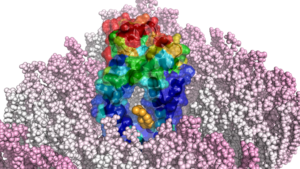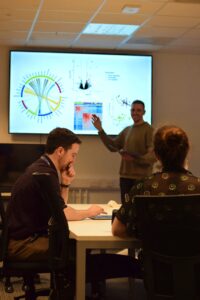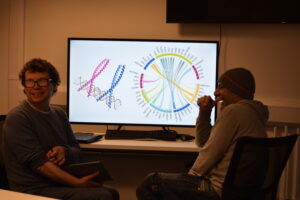How you'll learn
You will experience a range of teaching and learning methods, including lectures, seminars, workshops, group discussion and e-learning.
Programme modules encourage individual and group work where you will tackle problems by developing ideas and hypotheses, design learning strategies to solve problems, and then analyse and interpret your findings.
Course material is available 24-hours a day on Canvas, our online learning platform. One-to-one meetings with your research supervisor will allow you to discuss science, develop your critical thinking and creativity through an ongoing feedback model.
Your master research project provides a full academic research experience, including the planning, execution and communication of scientific research.
How you're assessed
Assessment of knowledge and understanding, practical skills and transferrable skills is through a blended mix of coursework that may include practical and project reports, essays, completion of workbooks, talks, data handling sessions and posters.
All modules will provide you with feedback on your learning progress and allow for adjustment of your learning. Electronic resources available on the University virtual learning environment support learning and teaching.
Liverpool Hallmarks
We have a distinctive approach to education, the Liverpool Curriculum Framework, which focuses on research-connected teaching, active learning, and authentic assessment to ensure our students graduate as digitally fluent and confident global citizens.
The Liverpool Curriculum framework sets out our distinctive approach to education. Our teaching staff support our students to develop academic knowledge, skills, and understanding alongside our graduate attributes:
- Digital fluency
- Confidence
- Global citizenship
Our curriculum is characterised by the three Liverpool Hallmarks:
- Research-connected teaching
- Active learning
- Authentic assessment
All this is underpinned by our core value of inclusivity and commitment to providing a curriculum that is accessible to all students.









